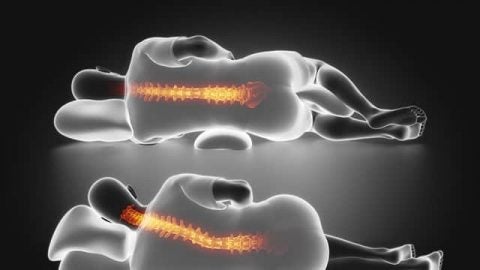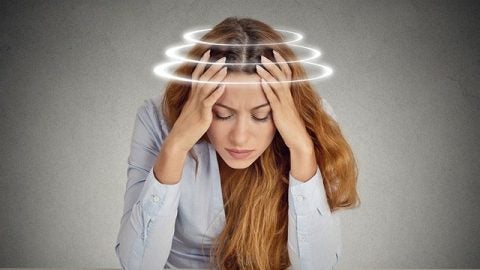The medical industry is constantly discovering new illnesses as well as new antidotes. One particularly peculiar compound found to hold beneficial elements despite the bad nature of its origin is CBD oil.
What is CBD Oil?
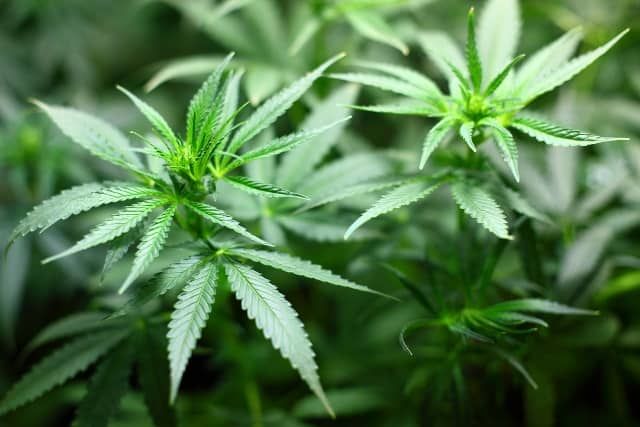
The cannabidiol is turned into the oil (or a concentrated liquid) by the time it has been extracted from the plant, which brings us to CBD oil. CBD and THC are the two most prominent of chemicals inside of the cannabis plant. CBD, as mentioned before is the one that wields potential beneficial properties while THC is what creates the marijuana ‘high’. The effect of THC will be discussed later on.
So now the question remains, when was this new-found friend to health found, and what benefits have come from this discovery?
Discovery of CBD Oil
The discovery of cannabidiol was made in 1940, about twenty years before THC was ever discovered. Unfortunately, up until recently, THC has dominated the interests of cannabis researchers leaving cannabidiol left on the sidelines. Since THC was, after all, the psychoactive property inside of the cannabis plant, many scientists and biologists wanted to discover the contents of THC and how it created the well-known ‘high’ of marijuana.
The cannabis plant has been seen in use for medicinal purposes for a long time now. William Osler in the 19th century believed the cannabis plant had the potential to be a treatment for migraines.

This cell system, when touched by THC activates and then confuses the cells, forcing them into rapid action. CBD has the same effect as THC, but not to the same extent.
CBD oil, when taken in small doses, shows an increase in alertness and energy. But when taken in a larger dose in the evening, it seems to have the opposite effect. It is this calming and restorative effect that seems to help with sleep-related concerns.
Is It Legal and Where?
The legality of CBD in the entire United States is quite unclear. Some states have legalized marijuana for medical purposes only, other states have legalized it entirely, and the remaining have made it completely illegal regardless of use.
The federal government considers CBD to be the same as marijuana but does not enforce it. This is up to the states and their perspective on restriction. The government also has two different perspectives when it comes to hemp-derived CBD oil, and CBD oil derived from the Cannabis Sativa (marijuana plant). Since the legality of hemp is being fought for, it’s going to steadily become tougher to keep CBD illegal or restricted.
CBD is, however, legal in Canada. It’s a practiced medical ingredient which has been implemented in multiple treatments.
The situation in the United States is harder to pin down. As of 2018, the Agriculture Improvement Act of 2018 legalized CBD that was derived from hemp, with no more than 0.3 contamination of THC. You also need a license to farm hemp, otherwise, your harvest is immediately considered illegal.
The CBD that comes from marijuana, on the other hand, remains an illegal substance under the Controlled Substances Act. States have different standings on whether marijuana is legal or not, and in which situations marijuana is legal.
Listed below are the states, and their positions on the legality of marijuana.
Marijuana is considered legal:
- Washington
- Oregon
- California
- Nevada
- Colorado
- Illinois
- Michigan
- Maine
- Alaska
- Vermont
- Massachusetts
Marijuana is considered legal for medical use:
- Utah
- Arizona
- New Mexico
- Montana
- North Dakota
- Minnesota
- Oklahoma
- Missouri
- Arkansas
- Louisiana
- Florida
- Ohio
- West Virginia
- Pennsylvania
- New York
- New Jersey
- Delaware
- Maryland
- Connecticut
- Rhode Island
- New Hampshire
Marijuana is considered legal for medical use, with limited THC content:
- Wyoming
- Kansas
- Iowa
- Wisconsin
- Texas
- Indiana
- Kentucky
- Tennessee
- Mississippi
- Alabama
- Georgia
- South Carolina
- North Carolina
- Virginia
Marijuana is considered illegal:
- Idaho
- South Dakota
- Nebraska
The status may change with time so it’s always best to figure out which states have made it illegal or legal based on your location and the current time.
CBD and THC; What Makes the High?
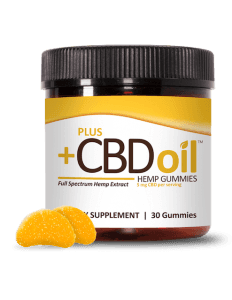
THC activates the cannabinoid receptors inside of your endocannabinoid system, which then makes them react oddly and differently than they typically would, hence the ‘high’. Your memory, movements, concentration, coordination, sensory system and time perception are all affected by this action which disturbs your immune system as well.
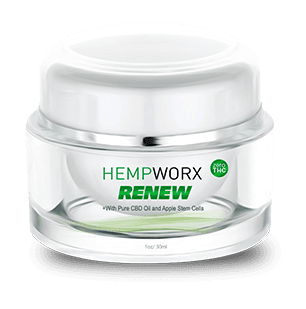
CBD is known to actually obstruct the high associated with THC. Since CBD is not as strong as THC, it does not activate your endocannabinoid system with the immensity to which THC does. This means CBD is safer, but it’s useless against THC when they’re both being consumed together.
THC releases dopamine in the body which creates euphoria. It interrupts and tampers with the way your hippocampus interprets memories. With continuous use, you can get hallucinations, delusions, and lose memory. The effects last about two hours, with a10-30-minute kick-in, but long-term effects are entirely possible.

There is a plant that provides minimal THC, which is hemp, a type of cannabis plant that is mixed with marijuana too often.
You might be interested in: CBD Oil VS Hemp Oil
Cannabis VS Hemp
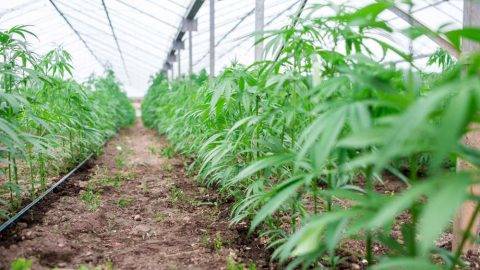
CBD oil comes from the infamous Cannabis Sativa or marijuana plant. Hemp oil is actually CBD from the hemp plant. They hold similar if not the same benefits, but they are very different. The first difference you may see, of course, is the price tag.
Since CBD oil is a relatively new discovery that holds confusion in legality, attaining it is going to be no easy task. The price will go up since it’s harder to manufacture. Hemp oil has been around for longer and it is both farmed and produced legally. There will be a drop in price since attaining it isn’t as hard a process.
To further understand the difference between these two plants, it’s essential to break them down.
Both hemp and marijuana belong to the same plant family; the Cannabaceae family. Inside of this family, they fall under the category of Cannabis. There are three primary species; Cannabis Sativa, Cannabis Indica, and Cannabis Ruderalis.
Now the best way to differentiate between these two confusing plants is by knowing what they are on their own.
Marijuana identifies all those cannabis plants that have more than 0.3% THC. Hemp identifies all those cannabis plants that have less than 0.3% THC. Hemp is known to be the strongest natural fiber in the world. It spans into the textile industry, paper, food, construction, and health industry. From the seeds, roots, leaves, and stem the hemp plant can be used for a lot of purposes.
Under direct sunlight, THC does not tend to thrive, so while hemp is planted outside in order to enhance growth rate, marijuana is grown indoors to control the THC concentration.
CBD vs Hemp-Derived CBD Oil?
CBD oil can be used for your health, and it can also be used as a beauty product. Hemp CBD oil can even be used as a cooking product.
CBD oil derived from hemp is naturally made from hemp. Hemp has less than 0.3% THC and hemp seed has 0% trace of THC. Since the hemp plant creates 20% and more at once, it’s easier to get CBD oil from this plant.
Marijuana produces THC at 20% and higher, while it only creates CBD at 10% and sometimes a little higher than this. It’s harder to get CBD out of marijuana plants since there is a lot of THC that must be extracted from the mixture first. Eventually, you can get purely CBD oil which is very beneficial, but traces of THC are what make the CBD oil untrustworthy. Once attained, though, you can use it for chronic pain, mental health, and illnesses.
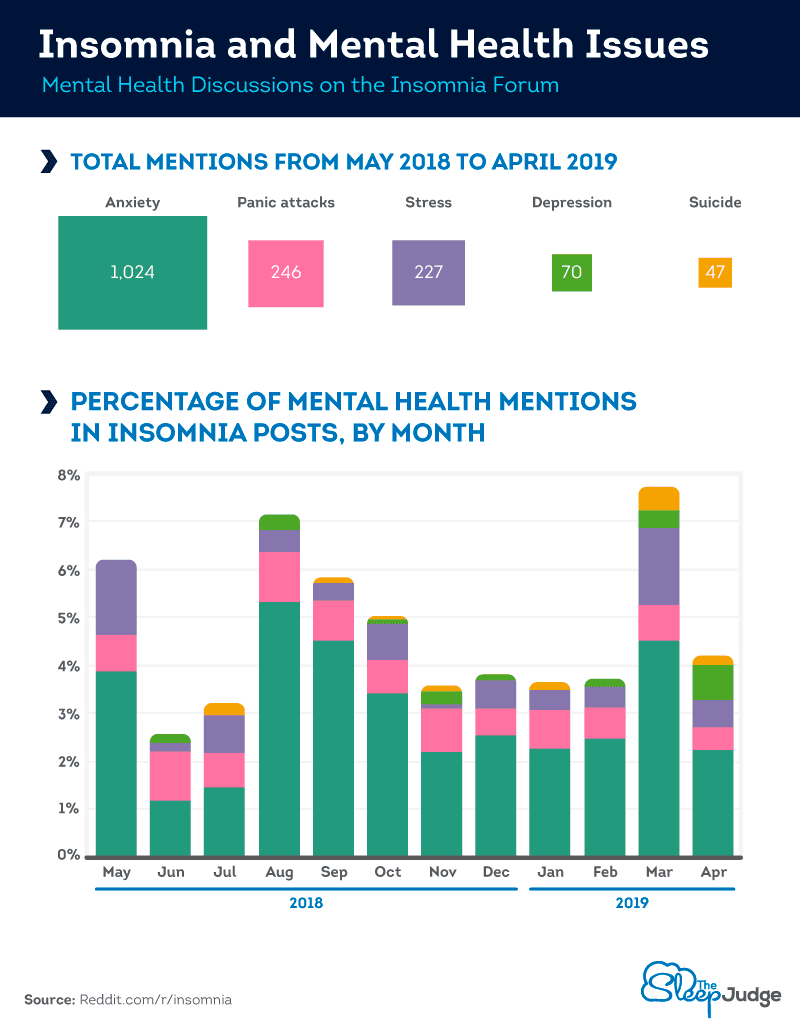
CBD attained from marijuana is harder to come by, takes more filtration to achieve, and isn’t even legal in many states. It’s harder to come by pure CBD oil, which naturally makes it more expensive.
Extraction Method of CBD oil?
There are a couple of ways to extract compounds from a plant. When it comes to extracting CBD, there are three main ways to do so; ethanol extraction, water extraction, and CO2 extraction.
Ethanol extraction is the oldest method used for extracting plants and their compounds. By using this method, you are also creating a tincture. Alcohol has a way of transforming the biochemistry of plants, bringing the compounds that work inside of the plant out.
Ethanol is the best solvent to use in this case since it allows minimal damage of the cannabinoids. They are also protected from any oxidation or contamination. By creating a tincture, you have a more diverse dietary supplement that can be used daily for different reasons.
This method of ethanol extraction can even be used at home! (If you have the green thumb for it.) All you need is a jar, some alcohol, and the part of the plant you wish to extract. Obviously, there is a certain amount of alcohol you’ll need, and the amount differs from each part of the plant, but once you’ve figured it out you can create your own supplements at home.
Tinctures aren’t very complicated, but it’s not a matter that should be taken lightly either. Here is a link to professional help on the matter, if you’re interested in creating at-home tinctures. The best solvent to use is vodka since there will be no aftertaste when using this alcohol
The next extraction method is water extraction. This depends on whether the plant itself is soluble in water. Water can be used as a solvent for CBD, but there are variables. What has been added to the water i.e. salt, heat, concentration, potency, the ratio of water-to-herb, all of this will change how the cannabis dissolves in the water. For more information on water extraction, here is a link for herb extraction and much more.
The final method of extraction is perhaps the purest of them all since it provides users with the cleanest CBD oil. This is also the most expensive method of extraction to achieve CBD oil. CO2 extraction. CO2 in this situation is the solvent which extracts the oil.
While using CO2 as your solvent, there will be no excess residue after extraction which is what makes it such a popular solvent. With the CO2 extraction method, the carbon dioxide is placed under extreme pressure and low temperatures in order to isolate the oil while maintaining its purity and structure.
There is an immense amount of equipment required for this process and the equipment does not come cheap, so you can naturally expect your product’s price to be pricey when CO2 extraction is used.
Consumption Methods of CBD Oil
Since CBD oil is slowly becoming a more common medicine people resort to using, there are bound to be multiple methods of consumption. If CBD oil is something that interests you, have a look at the multiple ways you can consume it to determine which one is best suited for you.
1. Edibles
CBD edibles are basically foods and drinks that already have CBD oils infused in them. These edibles are easier to eat than having to take CBD oil on its own, and you get something to eat along the way so you’re not consuming a supplement on an empty stomach.
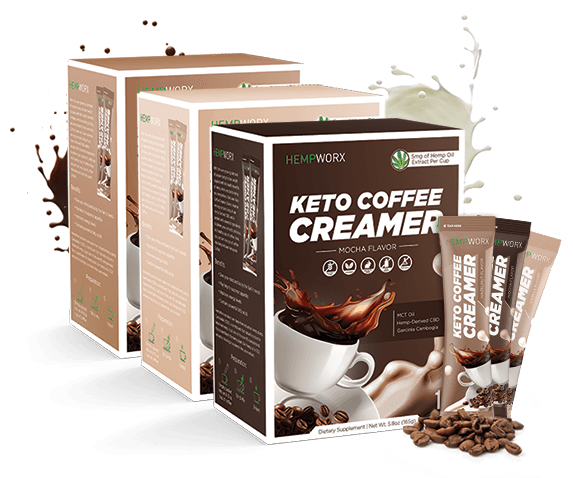
2. Oils and Tinctures
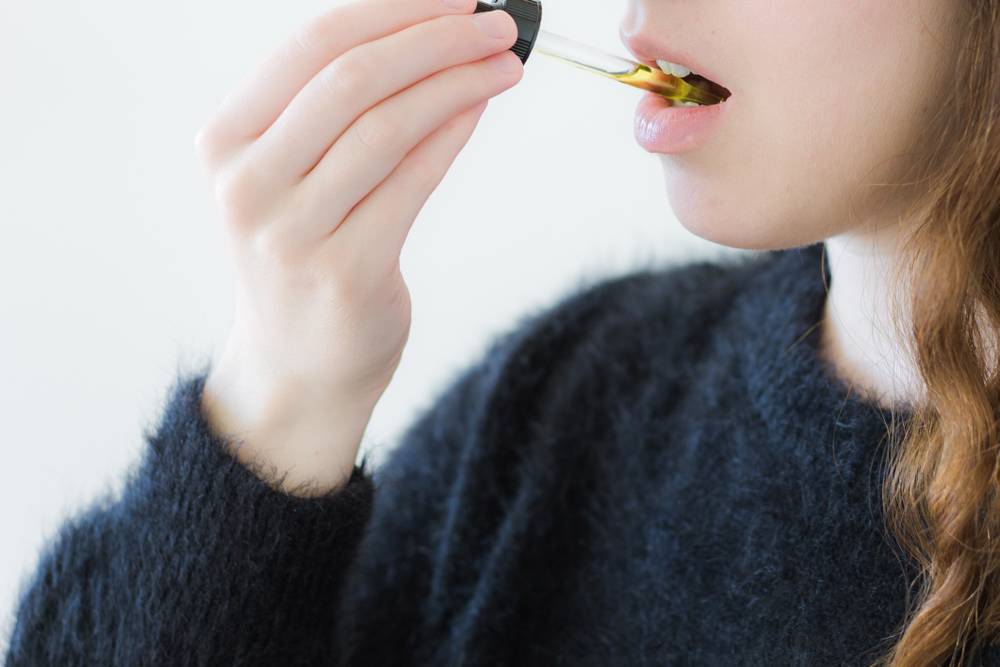
3. Vapor
Yes, you can vape your CBD. This method is a heated-up concentration of CBD which can then be inhaled. It’s not the most common method and it could take a bit of getting used to. The effect of vape, however, is almost immediate as it goes to your lungs directly. The effect does not last long, so you’ll have to continuously vape in order to get the desired amount of CBD.
4. Skin Patches
Skin patches, or transdermal patches, can deliver the CBD you so desire through your skin. They are adhesive patches that you keep on for 4-6 hours and they continuously provide you with CBD. There are two different skin patches to look into; matrix patches and reservoir patches.
Matrix patches have CBD infused inside of the adhesive layer. Reservoir patches contain tiny reservoirs in which the CBD is located. This patch will also come with a gel solution.
5. Topical Lotions and Creams
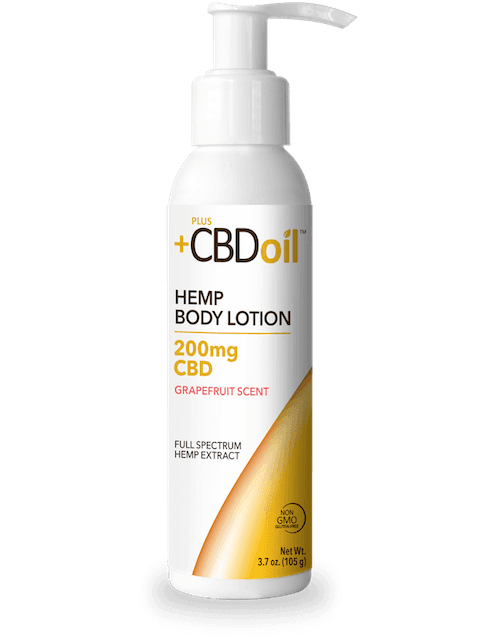
Benefits of CBD Oil
The listed benefits of CBD oil are numerous. There are many advantages you can gain from CBD, many of which are sleep-related. Those given below are not the sleep-related ones but those that help other disorders, diseases, pains, and illnesses.
- CBD can help your acne, which is a skin reaction many teenagers and young adults suffer from. Acne happens because hair follicles get clogged with oil and dead skin. This creates whiteheads, blackheads, and pimples. Where they appear can vary from your face, forehead, chest, upper back and shoulders or all of the listed.
- Chronic pains can also be aided and prevented with the help of CBD. Chronic pain is not just a regular burst of pain, it’s long-term pain that doesn’t go, doesn’t deplete, but remains in a fixed position and creates a burning sensation.
- CBD can even help epilepsy. This is a central nervous system disorder that causes seizures and can even knock you unconscious. The disorder is neurological, and usually is a reaction to bright flashes and quick motions. Epilepsy is caused due to abnormal activity in the brain. There are many different types of seizures, all of which start with your brain acting up.
- CBD can be a treatment for Parkinson’s disease. There is no cure for Parkinson’s disease, but there are ways in which you can minimize the effect of it. What happens to your body is that your nerve cells in the brain which create dopamine, are affected. It creates spasms, tremors, rigidity, and speech impairment.
- You can conquer addiction with the help of CBD. For people who have a psychostimulant addiction (cocaine, opioid) or a smoking addiction (tobacco, marijuana) CBD can come to the rescue by blocking the temptation THC has over your mind. It reduces the psychoactive THC has on your endocannabinoid system, and with constant doses, can even overcome it.
Sleep Benefits of CBD oil
Now it’s time to highlight some of the benefits CBD oil can provide to those who encounter sleep-related issues.


CBD can directly affect your sleep cycle. It can help people who suffer from RBD, a disorder which forces you to enact your dreams while they are happening. It’s also linked to helping you overcome anxiety, depressing thoughts, and calms down the body’s endocannabinoid system.

The research for CBD is still relatively new and there is much that is still undiscovered. What is clear is that CBD works to remove bad thoughts and brings peace to mind. The one thing many of these disorders have in common is the fact that they originate from an unsettled mind. With the help of CBD, you can get your mind back on track which can calm down many parts of your body and help you find better and longer hours of rest and relaxation.
Side Effects of CBD Oil
CBD oil has not been perfected, of course, and there are some side effects people can suffer from if not careful with the supplement.
- You can experience nausea or vomiting if you have too much of it or it doesn’t cooperate with your immune system
- You can experience changes in your appetite and mood throughout the day and weeks while you’re consuming CBD oil.
- There is always the chance of a rebound in the symptoms you were trying to treat. You can feel dizziness or drowsiness after the effects of the CBD oil wear out.
- You can experience diarrhea after consumption.
- There is also the possibility of a dry mouth (this only happens when you’re taking oils, not edibles)
- Worst of all, there is a chance that you can experience waves of anxiety after the effect of the CBD wears off. This may mean you can become dependent on CBD though it is still not certain.
Where to Get CBD Oil?
Fortunately, CBD oil is sold widely over online retailers and many sleep-related blogs have taken account of the reliability of CBD oils. Websites have promoted products that are made of CBD oils. Unfortunately, Amazon does not sell any CBD products derived from marijuana since the federal government still considers it a Schedule I Drug.

